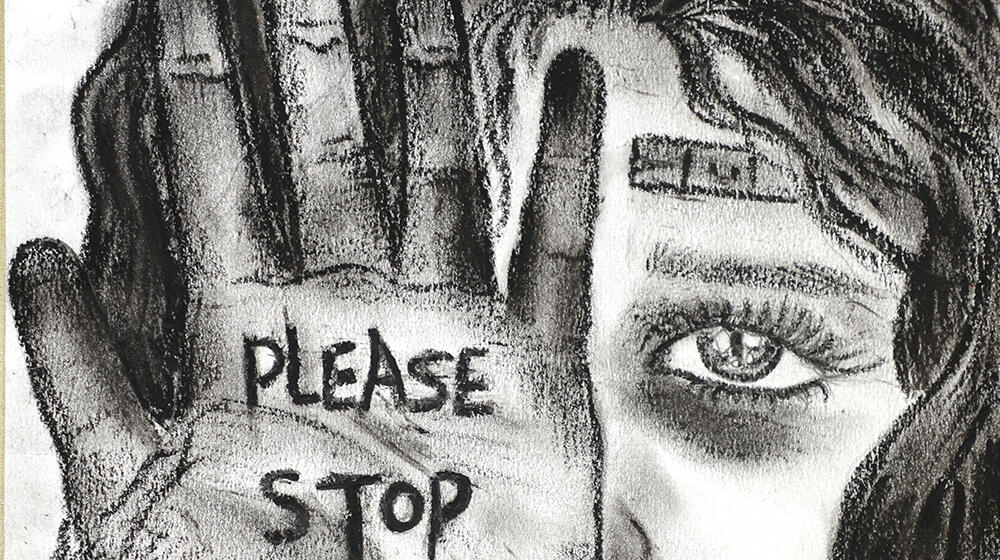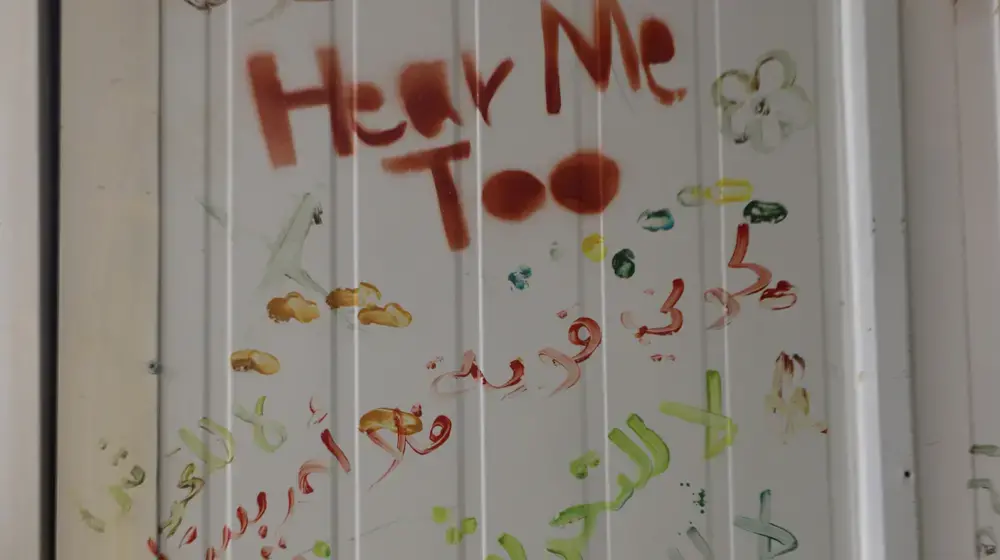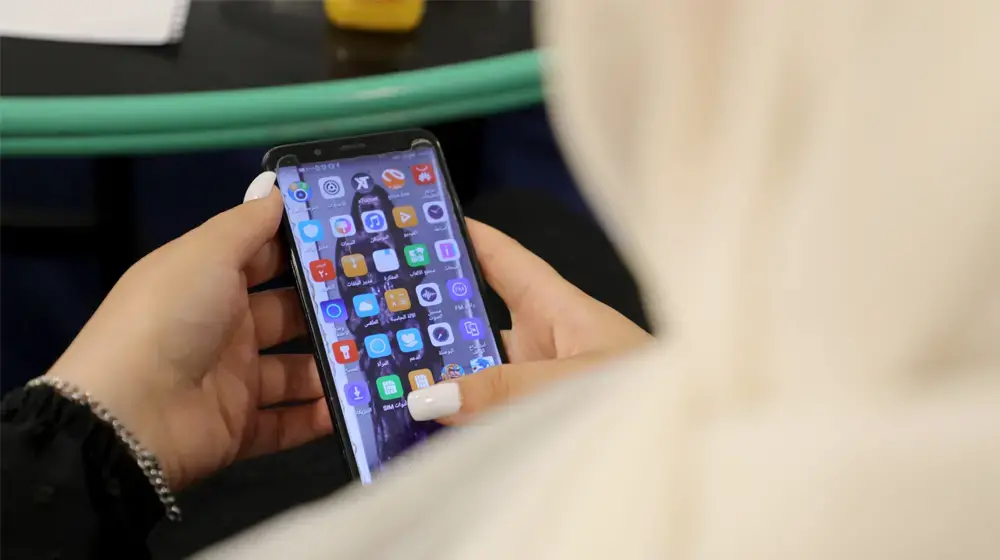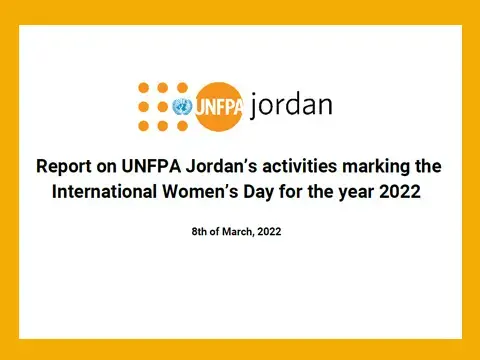From Agony to Hope
“When wars begin, so does the terror and devastation of sexual violence. The bodies of women, girls, men and boys become battlefields. Rape is used as a weapon of war just as surely as the bomb that blows up a building or the tank that ploughs through a crowd.” said Dr. Natalia Kanem, UNFPA Executive Director on the occasion of International Day for the Elimination of Sexual Violence in Conflict.
The consequences of sexual violence are many. It brutalizes bodies, scars minds, and even kills. It silences and shames survivors, sowing fear and insecurity. It leaves a destructive legacy through prolonged disability, sexually transmitted infections, lost wages, health-care costs, and stigma that attaches not only to survivors and victims, but to their families as well.
Ever since the beginning of the Syrian crisis, many refugees who were survivors of conflict-related sexual violence (CRSV) have fled to Jordan looking for a chance to rebuild their lives. Many of them were haunted by the memories of the sexual violence and exploitation they experiences during captivity. Thanks to the safe spaces supported by UNFPA Jordan in refugee camps and host communities, survivors were able to find safety, heal and reclaim their dignity and lives.
UNFPA has been working for the past years with the generous support of the UN Action Conflict-Related Sexual Violence Multi-Partner Trust Fund, and together with UNHCR and other partners to ensure survivors of CRSV are accessing and being provided with the needed services through well-trained case managers.
Women and girls are often considered to be more vulnerable to sexual violence than men due to social norms and gender inequality. However, it has been emphasized that men and boys can be subjected to different forms of violence and sexual abuse. Various forms of conflict-related sexual violence against men may refer to castration, sterilization, rape and forced masturbation of oneself and others. Men and boys may also be forced to perform sexual acts against other people or to witness sexual violence against others.
On the occasion of the International Day for the Elimination of Sexual Violence in Conflict, UNFPA Jordan is sharing the stories of two survivors who were subjected to sexual violence during the period of war in Syria. Their fates and the lives of their families were forever changed by the services provided at UNFPA safe spaces.
In the words of Salma
I lived the worst days of my life in detention. I was subjected to the worst forms of abuse, humiliation, and sexual violence, and I lived the most difficult and breathtaking moments. I wished for death many times, I wished to close my eyes forever, I wished to erase from my memory all the painful and disturbing memories. Why me?" What did I do?"
said Salma.
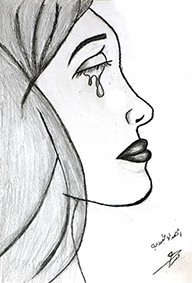
woman from Syria at the Women and Girls Safe Spaces in Zaatari Camp.
The story of Salma* - a 37-year-old Syrian woman - began when she was arrested during the war in Syria. Her story is that of hundreds of women and girls who have been subjected to all forms of violence, humiliation and exploitation as a result of the war. I lived the worst days of my life in detention. I was subjected to the worst forms of abuse, humiliation, and sexual violence, and I lived the most difficult and breathtaking moments. I wished for death many times, I wished to close my eyes forever, I wished to erase from my memory all the painful and disturbing memories. Why me?" What did I do?" said to the case manager at the Institute for Family Health (IFH) - one of the UNFPA Jordan’s supported implementing partners - in the Zaatari camp in Jordan.
For nearly a year, Salma had been subjected to different forms of sexual violence and exploitation while in detention. In 2013, she was able to flee with her three children to Jordan, but the events of the detention continued to haunt her every day and night. To this day, Salma still lives with fear and uncertainty. "The experience of sexual violence destroyed me and made me weaker. I was tired of self-blame and flogging. I became surrounded by memories that exhausted and tired me, nightmares and dreams that prevented me from enjoying my life even after my release from prison, and this experience is still present in front of my eyes." expressed Salma.
Like many other refugee women, Salma faced difficulty in adjusting to the camp’s environment. She was forced to marry a man who mistreated her. She said: "I couldn’t take it anymore. I hated my life and hated men. I only married him because my family forced me to! When we are in a closed room, all the memories from the detention return. I feel afraid, but where can I escape?… I did not want this life anymore.” Salma lived in constant fear, anxiety, despair, mistrust of herself and others, recurring physical pain, and disturbances in her sleep and appetite. She also isolated herself from everyone she cared about, as negative thoughts gradually chipped away at her soul.
Through the outreach team of the Institute for Family Health (IFH) in Zaatari camp - supported by UNFPA, Salma was introduced to the services provided at the Women and Girls Safe Spaces operated by IFH. She said: “When I arrived at the safe space, I felt that everything will change, and indeed that is what happened!"
Salma was attended by a case manager in the center, and this was the first time she spoke about the incidents that had occurred during the previous years. She was provided with case management services to identify her needs, such as psychosocial support. She was also referred to the Sexual and Reproductive Health (SRH) service provided by the Jordanian Health Aid Society (JHAS) which is supported also by UNFPA, and she received cash assistance to secure her basic needs and participated in recreational activities which helped her recover some hope.
After a year of continuous follow up, Salma’s mental and psychological health began to improve. She was no longer hostage to her past which had tormented her for years.
Today, Salma is independent, empowered and able to achieve and give back to her community: "I did not expect that one day I would reach where I am now! I thought that no one could help me or even get me out of the nightmare I was in. But after the healing trip with the case manager in the safe space, I was able to turn the page and start over. Today I am empowered, strong, working, taking care of myself, my family and those around me."
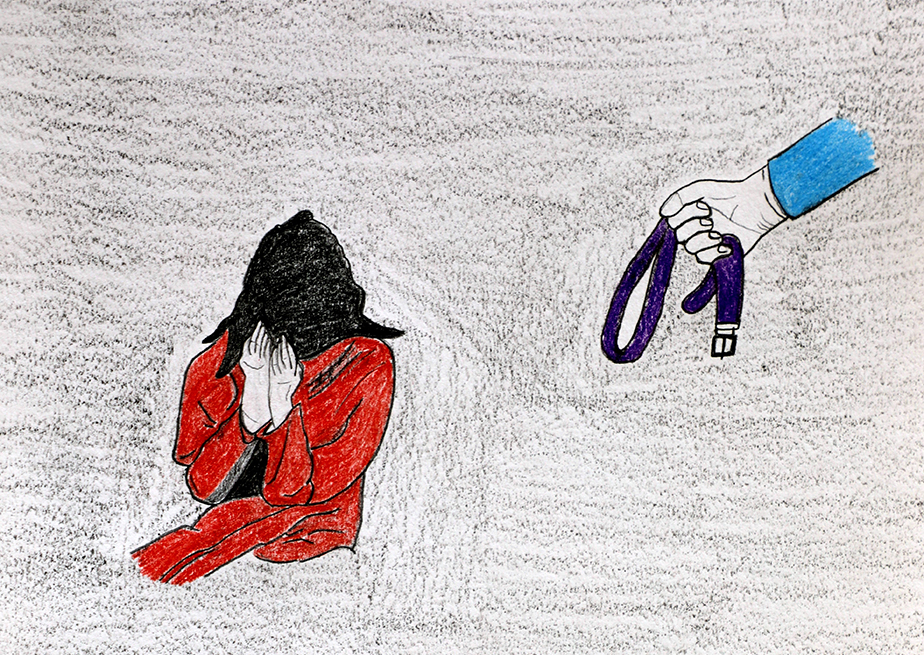
“In the words of Maher”
"I did not expect to get out of the detention alive. I lived there the worst days of my life. I was subjected to various types of torture, the most severe of which was sexual violence, which harmed me and affected how I saw myself, affected my relationship with my wife and children and everyone around me..." he declared.
Maher* is a 30-year old Syrian man, who was detained in a military detention center in his country of origin - Syria. Although he managed to get out, and flee to Jordan with his wife and four children in 2013, he was reliving the trauma of his time in detention every day.
Today Maher lives with his family in the Zaatari camp. Since entering the camp, Maher has had difficulty adjusting to the refugee situation and the camp environment. He is no longer the person he was before entering the detention. He said: “These thoughts and memories broke me and my home. I was no longer able to take care of my children and my wife, nor meet their needs. I was no longer able to work and communicate with others. Suddenly a new situation was imposed on me. I lost hope in everything, I didn't want my life anymore, I was eager to delete all these memories!"
Through the outreach efforts conducted by the outreach team at IFH in Zaatari camp, which is supported by UNFPA, Maher was introduced to the services provided in the community center. It was the beginning of his journey to healing.
At the community center, Maher benefited from the psychosocial support sessions. He was able to open up and share his experiences with a counselor when he was reassured that the services he received were confidential. He participated in awareness-raising sessions, and he was referred to the medical services provided at the Saudi Hospital in the camp.
I am back to the strong and passionate person I used to be! All my dark memories suddenly stopped controlling me. I have a strong desire to help others to create change, I found myself after I lost it
said Maher
Today, Maher is a volunteer at IFH and one of the active members of the team leading the male engagement program. He is passionate about educating men and boys about the available protection services for male survivors of violence, and he plays a crucial role in assisting in their referral. "These services improved my life. Now it's my turn to ensure that men and boys know that there are services that help them overcome the incidents that they may have been exposed to"
Maher is also an active member of the community committees inside the camp. He implements awareness-raising sessions for men and boys about GBV, gender equality, child marriage and more.
*The names of survivors were changed for protection and confidentiality reasons.

